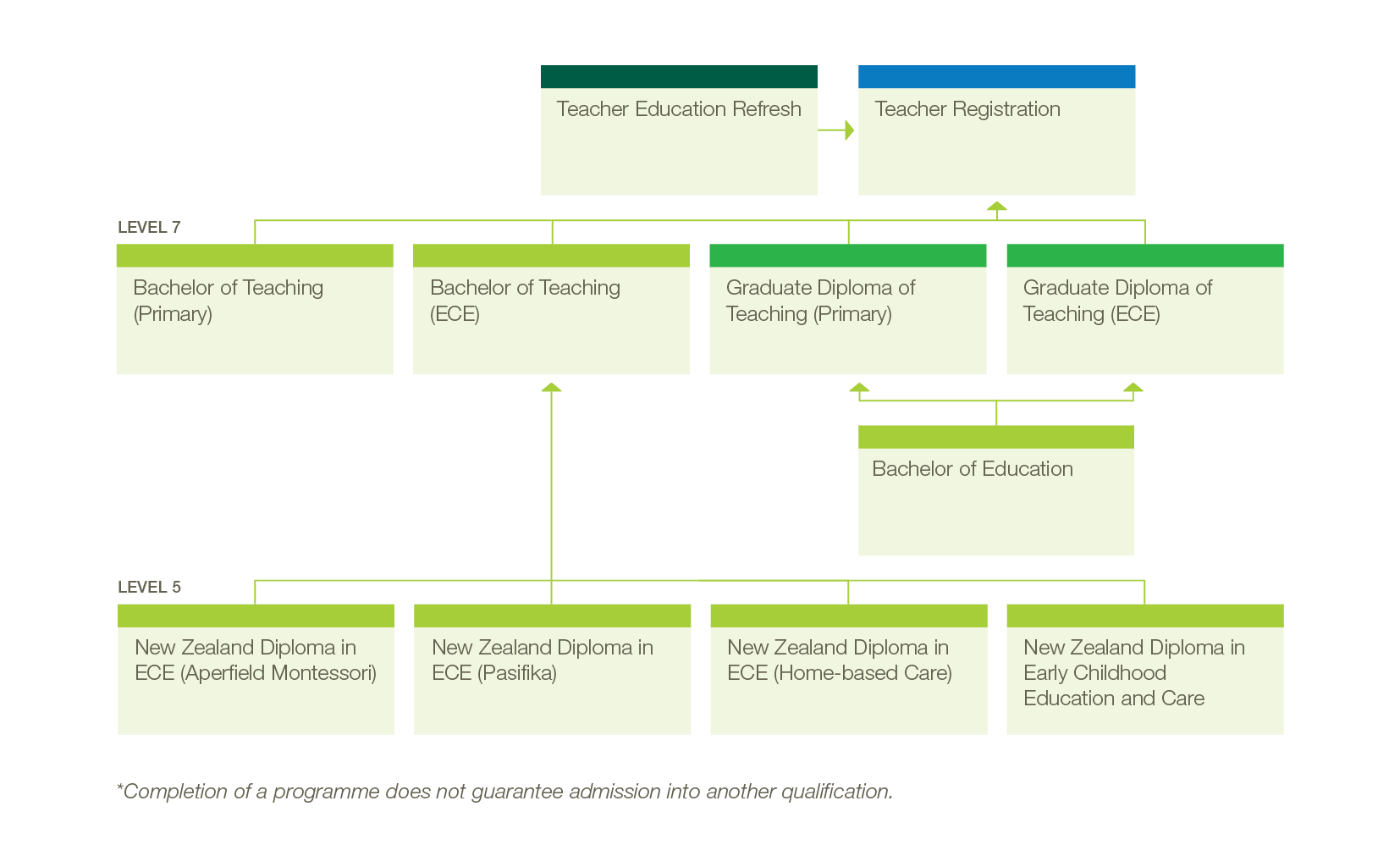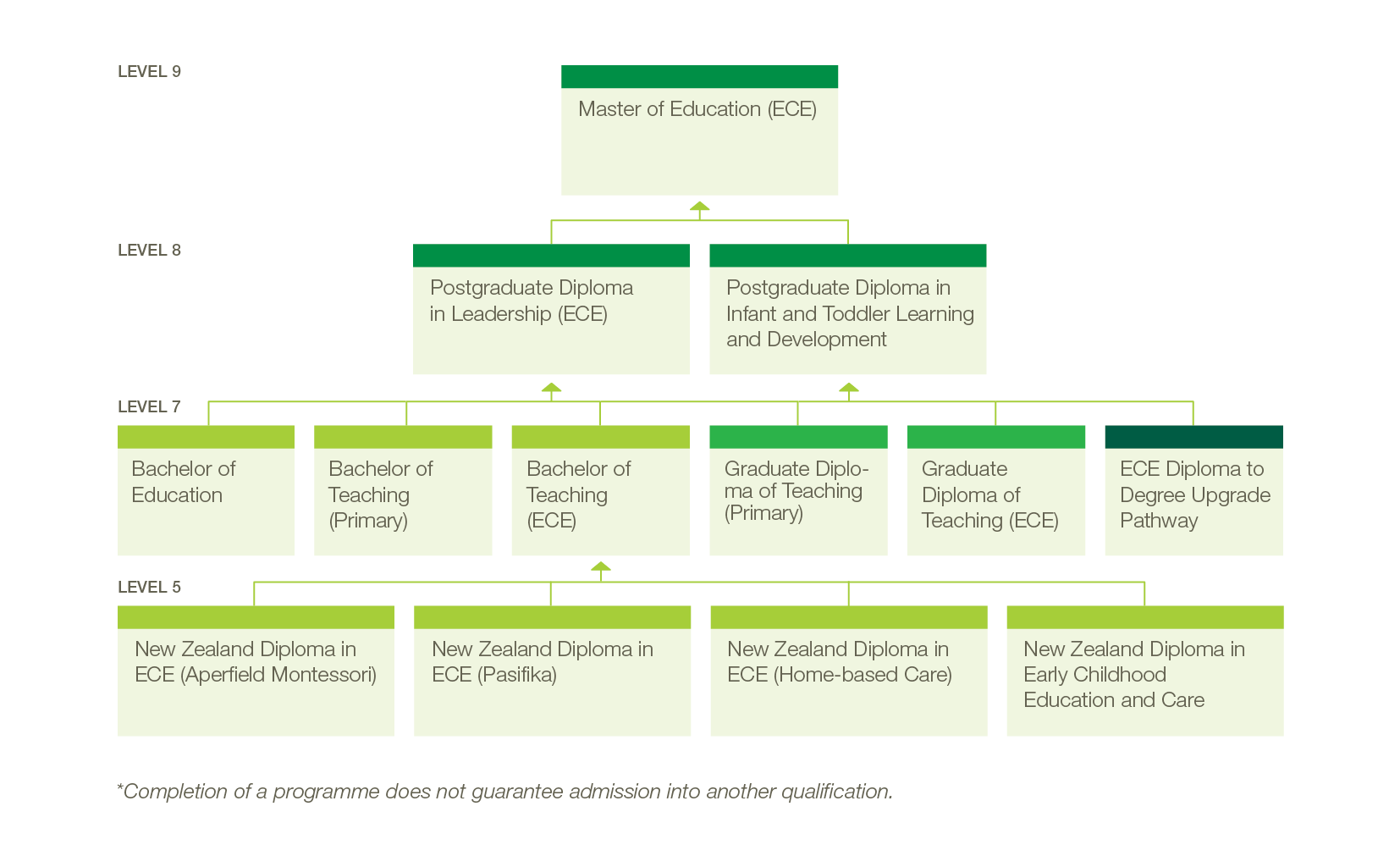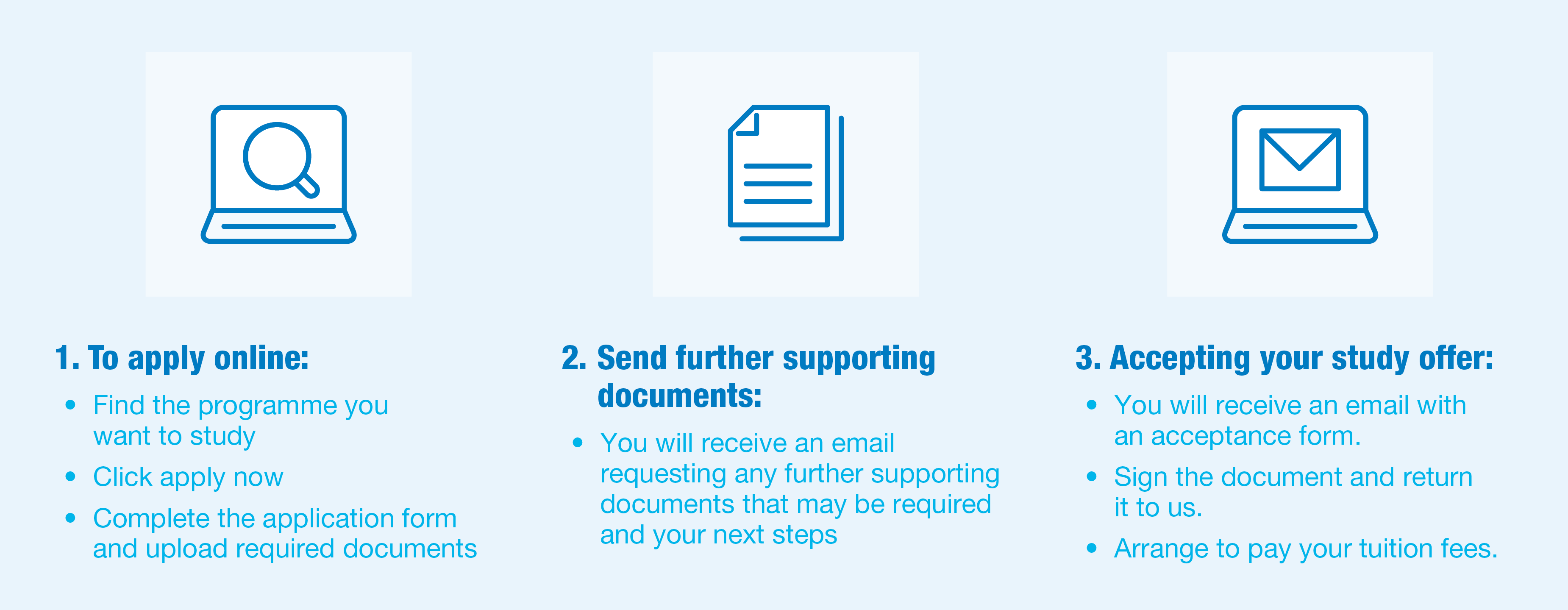New Zealand Diploma in ECE (Pasifika)
Tohu Pōkairua Mātauranga Kōhungahunga (Pasifika)

Level: 5
Credits: 120
Intakes: 2 per year
Duration:
Part-time: 2 years
Application closing dates:
Semester 2, 2026
Domestic Students: 15 June 2026
International Students: 18 May 2026

Kia orana. Fakaalofa lahi atu. Mālō e lelei. Tālofa lava. Tālofa ni. Ni sa bula Vinaka, Toha ni. Warm Pacific greetings. Let's discover Pacific ways of knowing, being and doing to engage with pacific learners in your community together.
We designed this diploma for all qualified and unqualified teachers wanting to improve their cultural competency and confidence when engaging with Pacific early learners in their community.
This programme aligns with the Ministry of Education and Teaching Council’s objectives of Tapasā to strengthen your cultural competency when working with Pacific learners.
Graduates gain a deeper appreciation for children’s well-being learning and development in the bicultural context of Aotearoa New Zealand to enhance their early childhood practice.
Qualified teachers will gain credit for two courses: Context for Early Childhood Education and The Child and only need to complete the two Pasifika-based courses.
Note: International students are required to be in New Zealand to study this programme.
Teacher Registration Pathway
This programme does not qualify students for Teacher Registration and a Practicing Certificate from the Teaching Council of Aotearoa New Zealand.

- Full-time or part-time
- Orientation day
- Online learning
- Field-based learning
You can choose to enrol in this programme full-time over 1 year or part-time over 2 years, whether you are a qualified or non-qualified teacher.
The courses will be delivered through a blend of online, field-based and face-to-face learning.
You will belong to a connected online community where support from lecturers and pouako is readily accessible. Face-to-face support from lecturers and pouako is also available at your nearest Regional Education Centre.
Assessment
This programme is assessed by internal assessment. Assessments are varied and include online conversation participation, essays, reports, PowerPoint presentations, multimedia presentations and other assessment types.
To be eligible for programme admission, you must:
-
Be at least 17 years of age if you are a domestic student; or 18 years of age if you are an international student.
-
Provide 2 written confidential referee reports.
Reports from family members or friends will not be accepted. -
Complete and pass a Children’s Worker Safety Check as required under the Children’s Act 2014.
-
Consent to and pass a Police Vetting check as required by the Children’s Act 2014.
-
International students are required to show proficiency in English by achieving an IELTS 5.5 overall (no band lower than 5) or a minimum mark of 42 overall at PTE Academic (no band lower than 36). NZ residents schooled outside of New Zealand may need to provide other evidence of their English language proficiency.
See: Language Competency Requirements -
Meet the minimum requirements to study at tertiary level in New Zealand.
We accept either:-
NCEA Level 3, including 10 literacy credits at Level 2 and 10 numeracy credits at Level 1
-
Equivalent experience or learning sufficient to study in the programme
-
-
Arrange to work or volunteer at a licensed Early Childhood Centre, supervised by a registered teacher with a full practising certificate, for a period of at least:
- 6 hours a week
What is a verified copy?
A verified copy is a photocopy of your original document signed as being a true and accurate copy by
a Justice of the Peace (JP), solicitor, church minister, kaumātua, police officer, school principal, Member
of Parliament or Te Rito Maioha teaching staff member. You can find a list of Justices of the Peace in the
Yellow Pages of the telephone book or at Royal Federation of NZ Justices’ Associations
Documents required to submit an application
1. Primary ID
You must supply a verified copy of one of the documents below:
- New Zealand Birth Certificate issued on or after 1 January 1998 carrying a unique identification number
- New Zealand Passport
- Overseas passport (must include relevant visa/residency permit)
- New Zealand Emergency travel document
- New Zealand refugee travel document
- New Zealand certificate of identity (issued under the Passports Act 1992 to non-NZ citizens who cannot obtain a passport from their country of origin)
- New Zealand certificate of identity (issued under the Immigration Act 1987 to people who have refugee status)
- New Zealand citizenship certificate
2. Secondary ID
You must supply a verified copy of one of the documents below:
- New Zealand Driver’s licence
- 18+ Card
- Community services card
- NZ student photo identification card – from another tertiary institution
- NZ employee photo identification card
- NZ electoral roll record
- Inland revenue number
- NZ utility bill, issued not more than six months earlier.
This programme consists of 4 (30 credit) courses:
| The Child Te Hā o te Tamaiti |
30 Credits |
| Context of Early Childhood Education Te Hā o te Ao Hurihuri |
30 Credits |
| The Pasifika Ways of Knowing and Being 1 Ngā Matatautanga Pasifika 1 |
30 Credits |
| The Pasifika Ways of Knowing and Being 2 Ngā Matatautanga Pasifika 2 |
30 Credits |
| Semester 1 2026 | |
|---|---|
| Start Date: | 9 February 2026 |
| Orientation (new students): | 9 February 2026 |
| Mid Semester Break: | 6 – 26 April 2026 |
| End Date: | 22 June 2026 |
| Semester 2 2026 | |
| Start Date: | 13 July 2026 |
| Orientation (new students): | 13 July 2026 |
| Mid Semester Break: | 7 – 27 September 2026 |
| End Date: | 22 November 2026 |
Fees cover all tuition costs, student guides, and readings.
All fees shown are for domestic students studying in 2026*:
| Full enrolment | 120 Credits | $6,880 |
| Part-time enrolment | 30 Credits in Pasifika | $1,580 |
| Part-time enrolment | 30 Credits in non-Pasifika | $1,860 |
Enrolling as an international student, you will be subject to international fees.
Oceania Scholarship
This scholarship is intended for all early childhood teachers wanting to grow their cultural skills to engage with young Pacific children and families in their communities.
Awarded recipients are expected to show outstanding commitment to their studies, contribute to their ECE centres, and act as ambassadors for Te Rito Maioha.
Scholarship applications close at 5pm, 13 January 2025
Discover other scholarships, grants and loans to finance your studies

“I’ve learned so many things from doing my diploma and now have the confidence to bring out my knowledge and share it to these children. When I see how far they’ve come and grown, I know that I’ve made a difference in their lives.”




